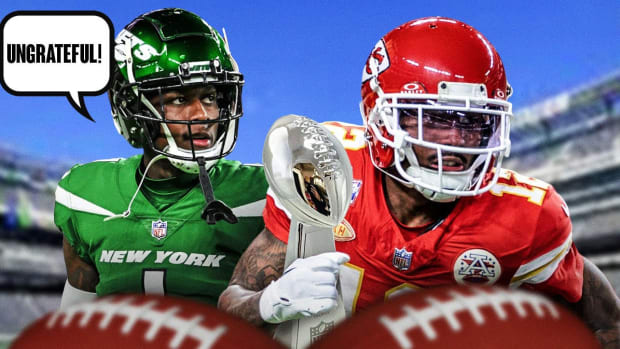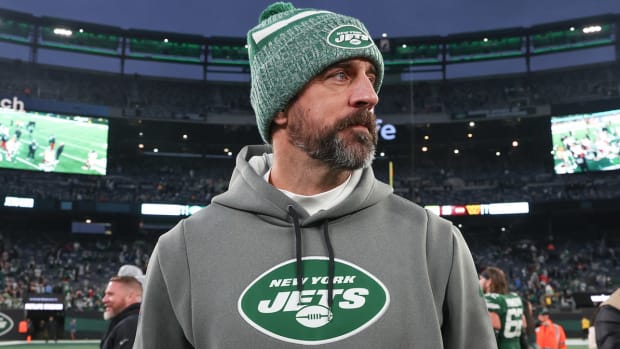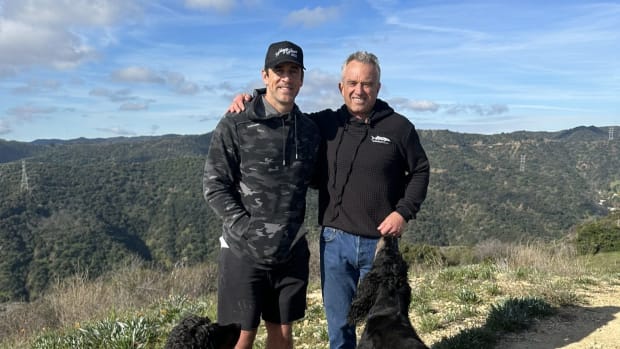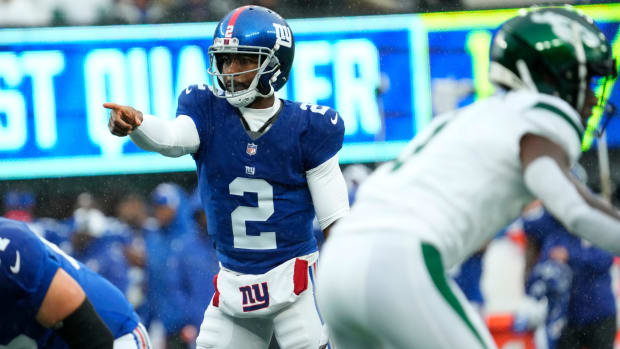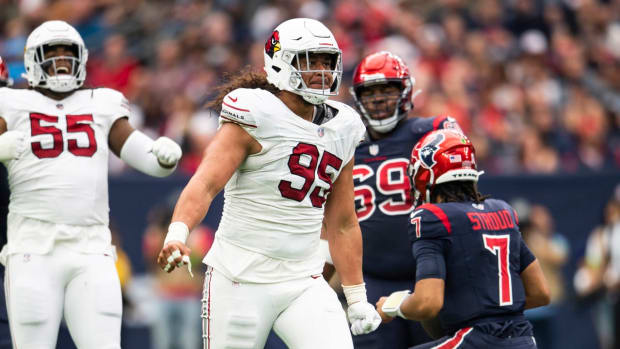New York Jets GM Joe Douglas adds playmakers on both sides of the ball on Day 2 of the NFL Draft
Joe Douglas doesn’t care what you think. He has a plan.
And he’s sticking to it.
It may be his first full offseason and the first time he has been in charge during the NFL Draft, but for Douglas, the New York Jets general manager, he will be doing things his way. All the outside noise doesn’t even cause him to blink.
As he did in free agency when he avoided the urge to spend quickly and big, Douglas pragmatically and patiently worked his way through Day 2 of the NFL Draft. In doing so, the ‘Douglas Doctrine’ was once again in action. It started with trading back from No. 48 when conventional wisdom held for the Jets to take the best available player. And in the next three picks in the third round, Douglas again put blinders on and stuck to his draft board.
In selecting Cal safety Ashtyn Davis and Florida defensive end Jabari Zuniga, Douglas rolled the dice. Like he did in free agency, he trusted his homework. Both players have massive potential and tremendous physical tools.
For a team lacking playmakers on both sides of the ball, Douglas got the Jets some speed and size through the first two days of the draft.
With regards to Davis, safety wasn’t a pressing need for the Jets coming into the draft but the player’s speed (he was also a track star at Cal) and position versatility (he can also play cornerback) were an intriguing combination for the Jets. Zuniga is talented and had a huge junior season in 2018 fall flat last year as a senior after a high ankle sprain caused the edge rusher to miss much of the season.
If healthy in 2019, Zuniga doesn’t make it to No. 79 and is likely gone in the second round at the latest. In Davis, the Jets can be accused of reaching but Douglas and his staff must have seen something that they think they can mold in the wildly athletic defensive back.
Speed like his simply can’t be taught.
Even in the second round when trading back, Douglas let a talented defensive end (Darrell Taylor) go with the original No. 48 pick he sent to the Seattle Seahawks. Then in the next two picks, a highly-rated wide receiver (Chase Claypool) and cornerback (Jaylon Johnson) went off the board. All three positions taken beginning at No. 48 were areas of need for the Jets. The move looked like a disaster.
Instead, Douglas trusted his board and ended up landing at No. 59 wide receiver Denzel Mims, a player slotted to go anywhere from late first round to early second round. The Jets were able to get him at No. 59 and acquire another pick (No. 101), completing the transformation of their offense in the first two picks of the draft.
This is why Douglas is so different than the last two general managers the Jets have hired. He’s a football guy, not a numbers cruncher. He trusts his evaluations and knows the board.
The picks might not work out, but at least there seems to be a plan and purpose to how he’s building this team.
All the Jets picks have been physical specimens, adding speed and size to the team. They all come with the ‘upside’ label and are a bit raw, but there are intriguing tools to work with here.
In a league that is getting faster and bigger, the Jets have seemingly stood idle the past five years. Not anymore.

